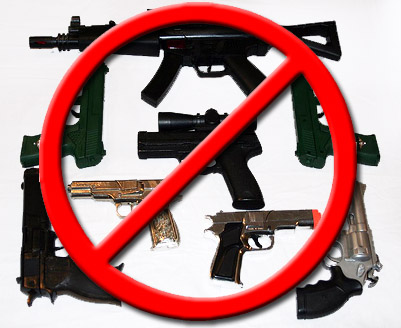Stop the Shootings; End Gun Violence
April 18, 2018
It has never been so scary to go to school before, not because of tests or bullying, but because of the shootings. The most recent school shooting happened on Feb 14 at Marjory Stoneman Douglas High school in Florida. The news has spread all over the United States and proved once again that gun laws are not strict enough.
Why is this happening? How many more acts of terrorism are needed to solve this lingering problem?
Most if not all shooters in these situations are teenagers. Let’s take a look on this year’s tragedies. On January 22, a 16-year-old male student fired at a 15-year-old female classmate that he had briefly dated in the cafeteria of Italy High School. On the next day, a 15-year-old male student shot 16 people in the lobby at Marshall County High School and caused non-gunshot injuries to four others. How come teenagers can access high-power guns, carry it on a daily basis, and shoot as if playing a game? Gun ownership in the United States is rooted in the Second Amendment of the Constitution: “A well-regulated Militia, being necessary to the security of a free State, the right of the people to keep and bear Arms, shall not be infringed”. However, there are restrictions such as bans on concealed weapons and on the possession of certain types of weapons as well as prohibitions against the sale of guns to certain categories of people. The Gun Control Act of 1968 prohibits persons under eighteen years of age, convicted criminals, the mentally disabled, dishonorably discharged military personnel, and others from purchasing firearms. However, if there is a huge possibility of breaking the law, then why access people to this kind of weapon at all? Usually, people buy guns for protection. As psychologists explain mass shootings trigger simultaneous fears that lead people to buy guns and invest in gun companies. Fear of gun violence makes people want to protect themselves and to get guns before they become harder to get. This fact makes solving this problem harder because the population might hide guns or try to protest in order to protect themselves. But to think about it, in reality, when you store a gun at your house, you actually have increased the chances of gun violence, whether it will be an accident, suicide, or domestic dispute.
In comparison to other countries, they have tougher gun laws, and therefore less terrorism. Most high-income Western democracies have comparatively low rates of firearm homicide. The United States is the exception; its firearm homicide rate of 3.55 per 100,000 population in 2013 is many times higher than that of any other such nation, and so is gun ownership – an average of 88 per 100 people. As we can see, there is a correlation between gun ownership and gun homicides: more guns seem to root more violence.
But it all can be changed. In fact, Australia, after Port Arthur massacre in 1996 with 35 people killed and 23 more wounded, responded with legislation that among other provisions, banned certain types of firearms, such as automatic and semiautomatic rifles and shotguns. The Australian government confiscated 650,000 of these guns through a mandatory buyback program, in which it purchased firearms from gun owners. It established a registry of all guns owned in the country and required a permit for all new firearm purchases. Australia’s firearm homicide rate dropped by about 42 percent in the seven years after the law passed, and its firearm suicide rate fell by 57 percent. The same thing with European countries, for example in UK, after a mass shooting at a school in 1996, the British government pursued legislative bans on assault rifles and handguns and tightened background checks for other types of firearms. As of 2013, a total of 200,000 guns and 700 tons of ammunition were taken off British streets. Military-style weapons and most handguns were banned. Gun ownership in the U.K. is far lower than in the U.S. as well – on average, Britain has 6.5 guns per 100 people.
The United States can prevent gun violence and solve this national problem with stricter gun laws and buyback. Something has to be done to stop the violence. No more shootings, no more deaths, no more grief.

